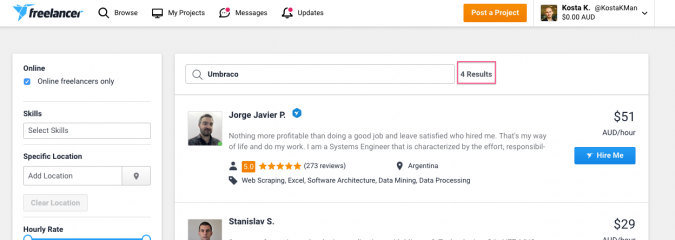Why WordPress Is Probably Better Than Your CMS (It’s Not Why You Think)

Based on users – WordPress is the clear choice winner as a CMS platform. Whenever people speak of alternatives to WordPress – most of the time they’re looking at it from the wrong perspective – or a forest from the trees type mentality.
WordPress is a CMS (Content Management System) – that allows you to make websites without needing to code – and using a very simple to use GUI (graphical user interface). Of course WordPress is not the only solution for creating websites easily – in fact the market is full of them. Some web development companies even have their own custom CMS solutions.
With so many options the discussion usually arises – which one is the best option for your business. However the discussions mainly center around features as so.
“Well WordPress is good – but XYZ CMS can do x – and WordPress can’t.”
In this particular blog post I wanted to explain why WordPress is probably better than your current CMS and why – this is not aimed at any particular CMS system – but instead is meant to show you why WordPress has stood the test of time despite competition from large established leaders (like Adobe for example).
WordPress and Switching Costs (And Why Competition is a Good Thing)
Now the last thing that I would want is for my WordPress clients to leave me for another provider – however one of the benefits that I’d be more than happy to demonstrate to them is how easy it would be – and cost effective – if they did.
There are many web development companies that have their own CMS platforms built from the ground up – and I don’t know how these companies manage to sell this concept to their clients. The problem is switching costs – if you try to change companies and need someone to work on that CMS – guess what – you’re out of luck, they don’t know how it works.
So now you need to start from the ground up.
WordPress is simply the largest ecosystem of developers – by far – compared to any other CMS platform. What this means is – you will always have someone to help you on your WordPress site – and understand its architecture – and because there are so many developers you will probably end up paying a fairer fee.
Let me give you a comparison example – on the site freelancer.com.au (marketplace for developers) if you type in ‘Umbraco’ (the name of an example WordPress CMS alternative) you will find only 4 developers available:

Vs. 1027 for WordPress

That’s 250x more developers to help you on your project – and the more people that can help you the better rates you can obtain – otherwise you are stuck to one person or a choice of 3 companies (any one that has lived in a country with an oligopoly knows how annoying this can be).
Unlimited Number of Extensions (It’s Not About Features)
When people try to compare CMS systems they usually talk about features – ‘well this CMS has this and WordPress doesn’t’.
Let’s use an example of such an argument – below are some advantages that are touted as Joomla having over WordPress
-
More advanced user management – Joomla offers a more advanced system for user access controls and user management out of the box.
-
Flexible for different content types – Joomla’s components and modules give you a bit more flexibility for displaying non-standard content types.
-
Multilingual support – Joomla has multilingual support built-in to the core, while WordPress requires you to use a third-party plugin.
-
Multiple templates – Joomla lets you use different templates for different pieces of content, whereas you can only use one WordPress theme.
Here is the problem when approaching selecting a CMS – because WordPress is created out of the box to be very customizable – it can be extended in a plethora of ways using ‘plugins’. These plugins can be easily downloaded and installed on your WordPress site with the click of a button. So let’s take something like ‘multilingual support’ as per the above – yes Joomla has this out of the box but WordPress has 15 multilingual plugins (some paid and some free)

So this ‘feature’ is not really a feature as it can be easily remedied with a plugin installation.
Then there is ‘advanced user management’ – again WordPress has a number of extensions for more fine grained control of users (in fact I was using one for a client) and many of these extensions are free.
But not only that – once you do start using these extensions – if you run into any challenges or trouble there is always a large community to assist you.
Summary
In the end it all comes down to the developer community – because WordPress has the largest community – with the largest amount of extensions meaning you will be able to find exactly what you need every time. If by any chance you can not, you can build your own extensions for WordPress – this is why I believe WordPress is the best solution for you and your business.
